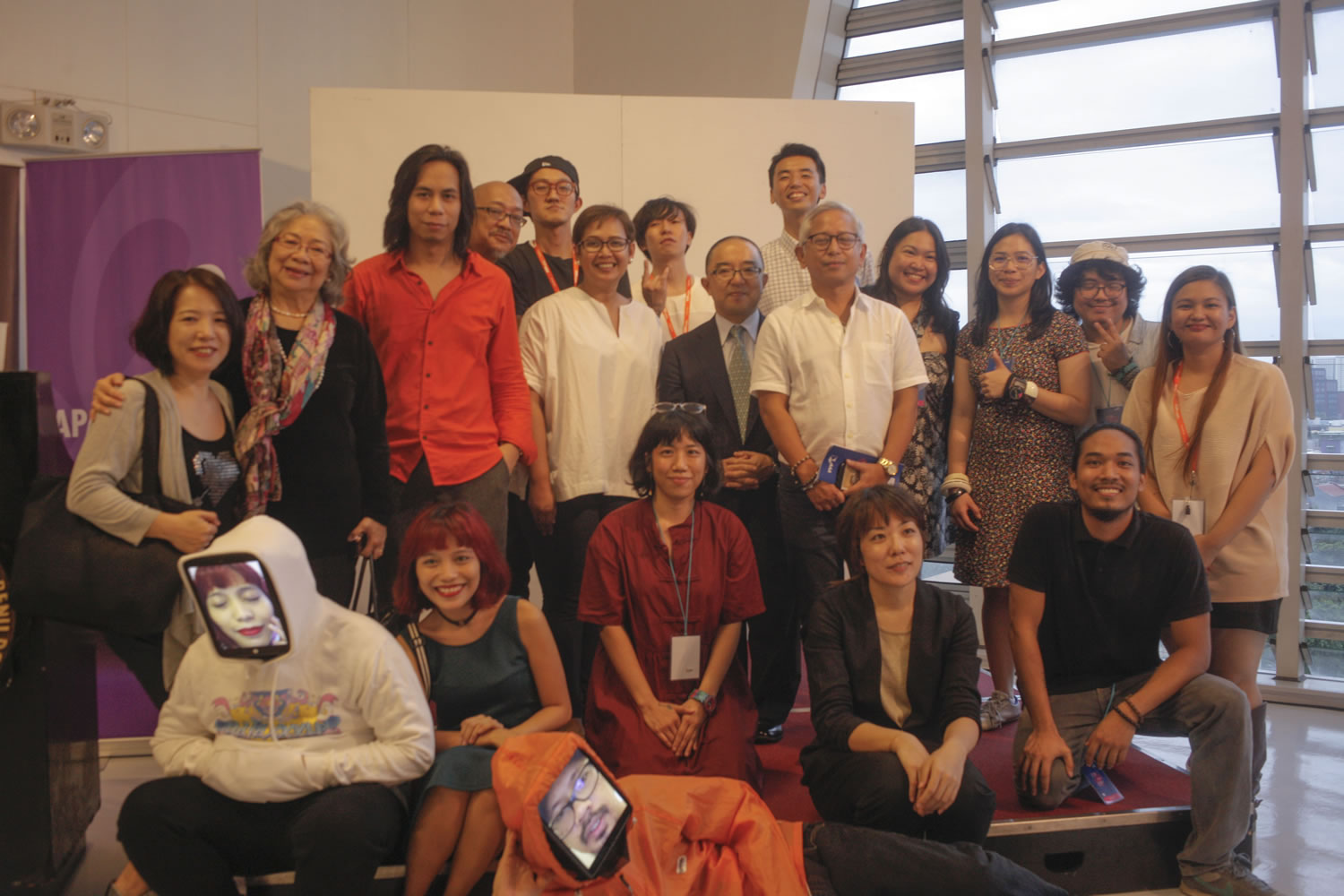WSK Axis 2017 amplifies the value of new media arts in the 21st century
WSK: The Festival of the Recently Possible together with The Japan Foundation Asia Center and De La Salle-College of Saint Benilde School of Design and Arts shed light on the growing importance of new media arts in the era of rapid innovation and technological evolution at WSK Axis 2017 festival, which ran from Oct 23 to Nov 4, 2017.
A platform to understand and showcase emerging art forms, the festival featured exhibits, fora, workshops and performances that offer critical perspectives on how emerging technology and digital discoveries are transforming human nature and the environment.

The exhibit “INTERSTICES: Manifolds of the In-Between” focused on artworks that marry traditionally divorced disciplines—science, arts, music, and technology. A mix of Japanese and Filipino artists—Ryoichi Kurokawa, Houxo Que, Tsuyoshi Hisakado, Pauline Vicencio-Despi and Ivan Despi, Tad Ermitaño, Ian Carlo Jaucian, and Derek Tumala, the artists assembled by curator Tengal Drilon is a multidisciplinary group who can not only paint but also code and solder.
Dubbed as WSK Feedback Forum, the fora mapped out various histories of new media arts with a focus on sound practices in the Philippines and Asia across different generations and locations. Key people in the local sound art scene Tad Ermitano, Lena Cobangbang, Tengal Drilon, and Erick Calilan shared their learnings from their experiences and opened the floor for dialogue about issues and possible initiatives that could help the scene grow even more.
Co-convened and organized by Filipino sound media artists and curators Dayang Yraola and Merv Espina, the fora also featured the collective’s immediate network in Asia: Aesthetics professor and Oggaki Biennale 2006 curator Hiroshi Yoshioka; independent sound archivist David Tarigan of Irama Nusantara, Jakarta; Joe Kidd of The Ricecooker Archives, Kuala Lumpur; Alice Wong of The Library, Soundpocket, Hong Kong; Mark Wong of Ujikaji Records, Singapore; Indra Menus of Jogja Noise Bombing, Jogjakarta; and renowned sound culture scholar Nakagawa Katsushi, Yokohama.
The workshops were geared towards developing people’s eye for new media arts that go beyond the surface to deepen perspective and appreciation of its relevance to culture, arts and education. With workshops like Houxo Que’s “The Medium is the Mess Age” that explores the relationship of the body to new and old media in the Internet age, to Heresy’s lecture-demo series featuring female creatives dabbling with new media (Teresa Barrozo’s “Sound AFX”, Gladys Regalado’s “Arduino for Artists and Designers” and Joee Mejias’ “Projection Design”), to the how-to workshops on DIY analog synthesizers by Mark Rambo, Laredo Hackerspace, and Andreas Siagian, WSK was able to deepen the audience’s understanding and appreciation of contemporary new media arts.
Primarily curated by Erick Calilan and Itos Ledesma, the festival’s performances served as a creative platform for independent practitioners to share their practice as well as foster and re-establish connections among a variety of different independent sound and media artists and collectives in the Philippines and across Asia.
Japan Foundation Asia Center together with with Jorge Wieneke celebrated unity between the Japanese and Filipino electronic music scenes at “x-pol”, a collaborative concert between Buwan Buwan collective and Maltine Records.
In anticipation of Manila Biennale: Open City, Carlos P. Celdran with Japanese artist Katsuki Nogami gave a free Intramuros tour featuring one of the festival’s performance installation, the “Yamada Taro” project. Filipinos who were part of the tour were excited and fascinated about the quirky “selfie” project.
A project by Japanese artist Katsuki Nogami, “Yamada Taro” explores ideas of identity and the anonymity in technology. “Yamada Taro” is a placeholder Japanese name, like “Juan Dela Cruz” in the Philippines. To create “placeholder people,” Nogami attached iPads to people’s faces. The performers, whom he calls “friends,” took photos of strangers they encounter. Each photo appeared on the iPad screens, “transferring” one’s identity to the performers.
WSK is on its way to building a physical space where the group will focus on archiving new media art from the past, especially sound practices.
“We’re planning to create an open library and archive housed in a physical location to encourage communities to engage each other especially the art and sci-tech communities,” founder Tengal Drilon revealed.
WSK is slated to put up a radio lab at Manila Biennale: Open City and is participating in Media Art Culture in Asia (MeCA) in Tokyo this coming February 2018.
Related events
WSK AXIS 2017: Festival of the Recently Possible
Manila Biennale: OPENCITY 2018

